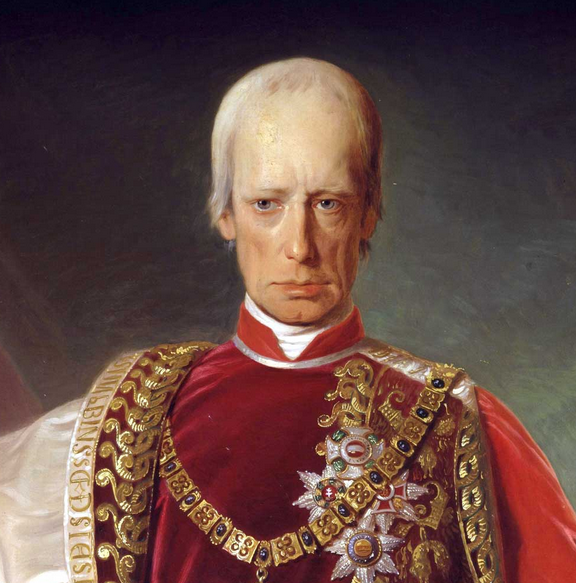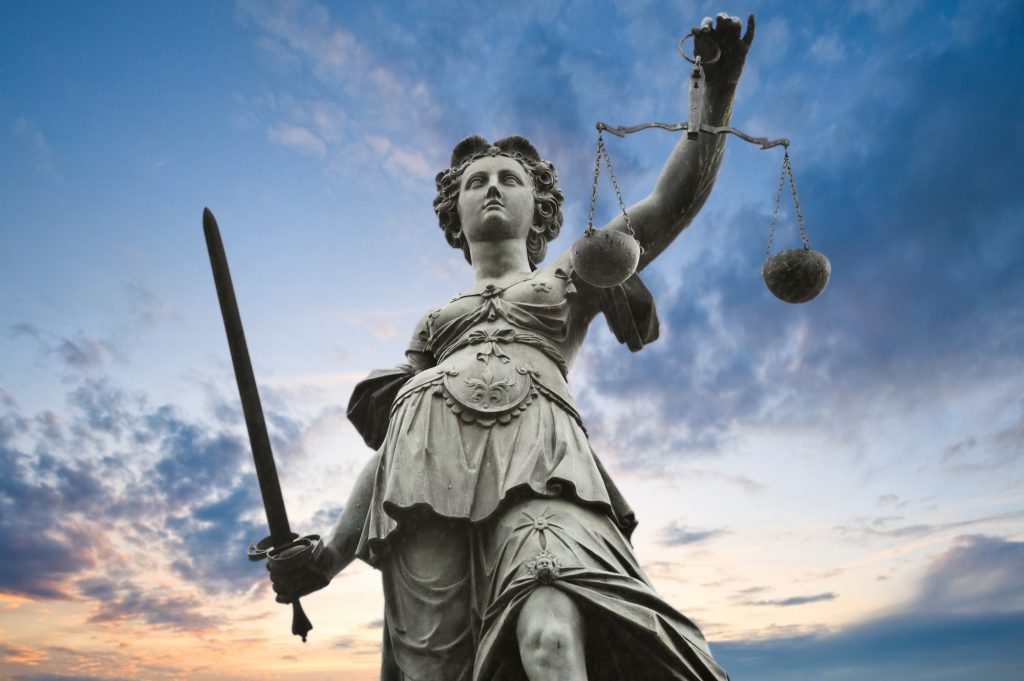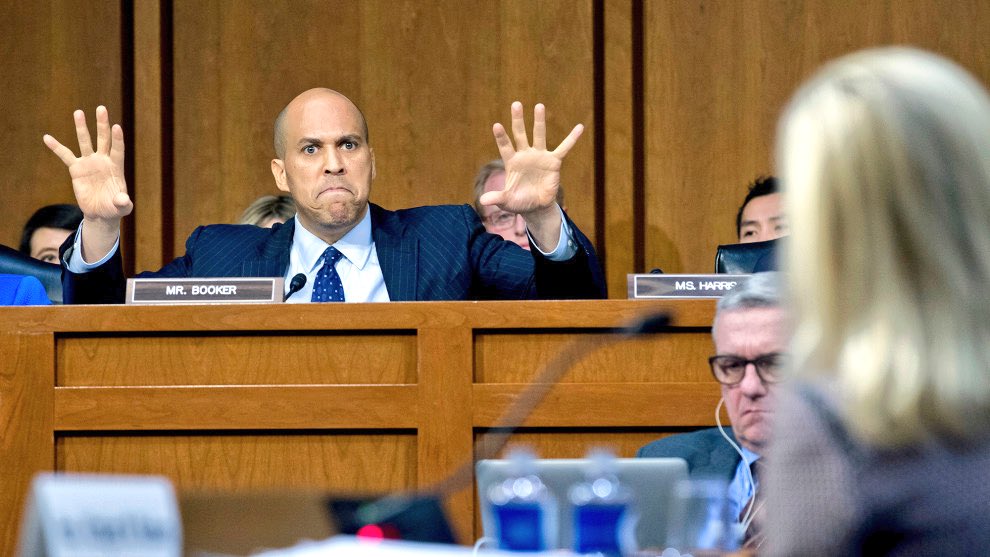Editor’s Note: The following comprises the twentieth chapter of The Holy Roman Empire, by James Bryce (published 1871). All spelling in the original.
(Continued from Part 19)
CHAPTER XX
THE FALL OF THE EMPIRE
Francis II, 1792-1806
Goethe has described the uneasiness with which, in the days of his childhood, the burghers of his native Frankfort saw the walls of the Roman Hall covered with the portraits of Emperor after Emperor, till space was left for few, at last for one. In A.D. 1792 Francis the Second mounted the throne of Augustus, and the last place was filled.
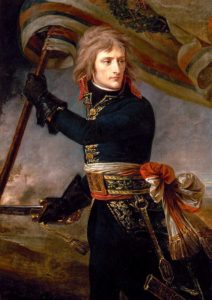
Napoleon, Emperor of the West
Three years before there had arisen on the western horizon a little cloud, no bigger than a man’s hand, and now the heaven was black with storms of ruin. There was a prophecy, dating from the first days of the Empire’s decline, that when all things were falling to ruin, and wickedness rife in the world, a second Frankish Charles should rise as Emperor to purge and heal, to bring back peace and purify religion. If this was not exactly the mission of the new ruler of the West Franks, he was at least anxious to tread in the steps and revive the glories of the hero whose crown he professed to have inherited. It were a task superfluously easy to shew how delusive is that minute historical parallel of which every Parisian was full in A.D. 1804, the parallel between the heir of a long line of fierce Teutonic chieftains, whose vigorous genius had seized what it could of the monkish learning of the eighth century, and the son of the Corsican lawyer, with all the brilliance of a Frenchman and all the resolute profundity of an Italian, reared in, yet only half believing, the ideas of the Encyclopædists, swept up into the seat of absolute power by the whirlwind of a revolution. Alcuin and Talleyrand are not more unlike than are their masters. But though in the characters and temper of the men there is little resemblance, though their Empires agree in this only, and hardly even in this, that both were founded on conquest, there is nevertheless a sort of grand historical similarity between their positions. Both were the leaders of fiery and warlike nations, the one still untamed as the creatures of their native woods, the other drunk with revolutionary fury. Both aspired to found, and seemed for a time to have succeeded in founding, universal monarchies. Both were gifted with a strong and susceptible imagination, which if it sometimes overbore their judgment, was yet one of the truest and highest elements of their greatness. As the one looked back to the kings under the Jewish theocracy and the Emperors of Christian Rome, so the other thought to model himself after Cæsar and Charlemagne.
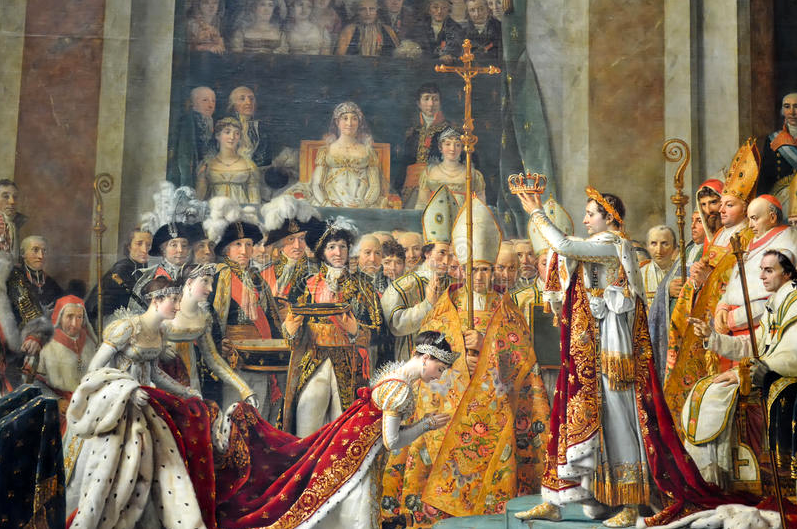
Belief of Napoleon that he was the successor of Charlemagne
For, useful as was the fancied precedent of the title and career of the great Carolingian to a chief determined to be king, yet unable to be king after the fashion of the Bourbons, and seductive as was such a connexion to the imaginative vanity of the French people, it was no studied purpose or simulating art that led Napoleon to remind his subjects so frequently of the hero he claimed to represent. No one who reads the records of his life can doubt that he believed, as fully as he believed anything, that the same destiny which had made France the centre of the modern world had also appointed him to sit on the throne and carry out the projects of Charles the Frank, to rule all Europe from Paris, as the Cæsars had ruled it from Rome. It was in this belief that he went to the ancient capital of the Frankish Emperors to receive there the Austrian recognition of his imperial title: that he talked of ‘revendicating’ Catalonia and Aragon, because they had formed a part of the Carolingian realm, though they had never obeyed the descendants of Hugh Capet: that he undertook a journey to Nimeguen, where he had ordered the ancient palace to be restored, and inscribed on its walls his name below that of Charles: that he summoned the Pope to attend his coronation as Stephen had come ten centuries before to instal Pipin in the throne of the last Merovingian. The same desire to be regarded as lawful Emperor of the West shewed itself in his assumption of the Lombard crown at Milan; in the words of the decree by which he annexed Rome to the Empire, revoking ‘the donations which my predecessors, the French Emperors, have made;’ in the title ‘King of Rome,’ which he bestowed on his ill-fated son, in imitation of the German ‘King of the Romans.’ We are even told that it was at one time his intention to eject the Hapsburgs, and be chosen Roman Emperor in their stead. Had this been done, the analogy would have been complete between the position which the French ruler held to Austria now, and that in which Charles and Otto had stood to the feeble Cæsars of Byzantium.
Attitude of the Papacy towards Napoleon
It was curious to see the head of the Roman church turning away from his ancient ally to the reviving power of France—France, where the Goddess of Reason had been worshipped eight years before—just as he had sought the help of the first Carolingians against his Lombard enemies. The difference was indeed great between the feelings wherewith Pius the Seventh addressed his ‘very dear son in Christ,’ and those that had pervaded the intercourse of Pope Hadrian the First with the son of Pipin; just as the contrast is strange between the principles that shaped Napoleon’s policy and the vision of a theocracy that had floated before the mind of Charles. Neither comparison is much to the advantage of the modern; but Pius might be pardoned for catching at any help in his distress, and Napoleon found that the protectorship of the church strengthened his position in France, and gave him dignity in the eyes of Christendom.
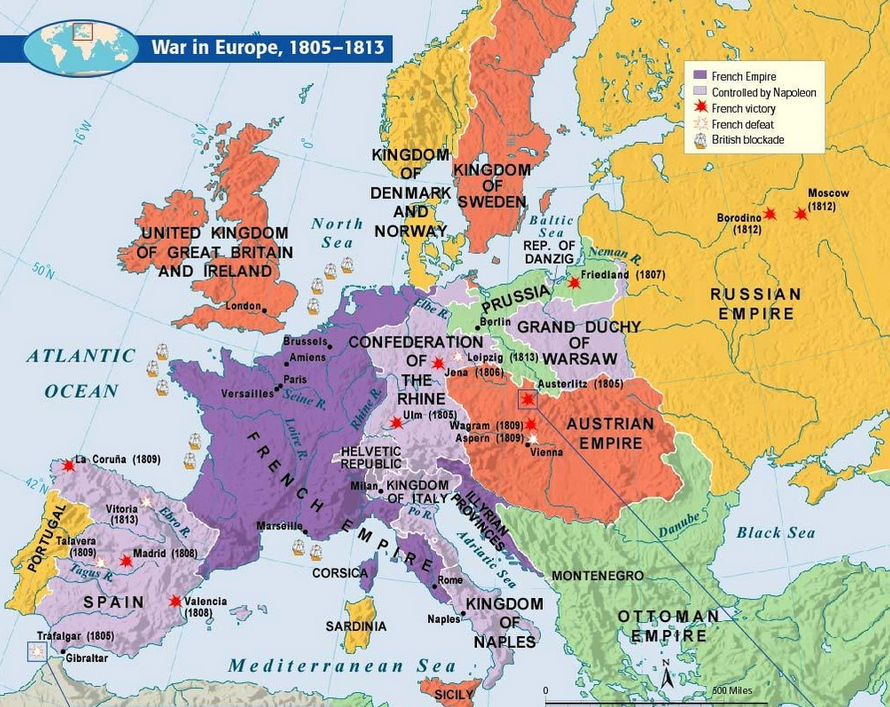
The French Empire
A swift succession of triumphs had left only one thing still preventing the full recognition of the Corsican warrior as sovereign of Western Europe, and that one was the existence of the old Romano-Germanic Empire. Napoleon had not long assumed his new title when he began to mark a distinction between ‘la France’ and ‘l’Empire Française.’ France had, since A.D. 1792, advanced to the Rhine, and, by the annexation of Piedmont, had overstepped the Alps; the French Empire included, besides the kingdom of Italy, a mass of dependent states, Naples, Holland, Switzerland, and many German principalities, the allies of France in the same sense in which the ‘socii populi Romani’ were allies of Rome. When the last of Pitt’s coalitions had been destroyed at Austerlitz, and Austria had made her submission by the peace of Presburg, the conqueror felt that his hour was come. He had now overcome two Emperors, those of Austria and Russia, claiming to represent the old and the new Rome respectively, and had in eighteen months created more kings than the occupants of the Germanic throne in as many centuries. It was time, he thought, to sweep away obsolete pretensions, and claim the sole inheritance of that Western Empire, of which the titles and ceremonies of his court presented a grotesque imitation.
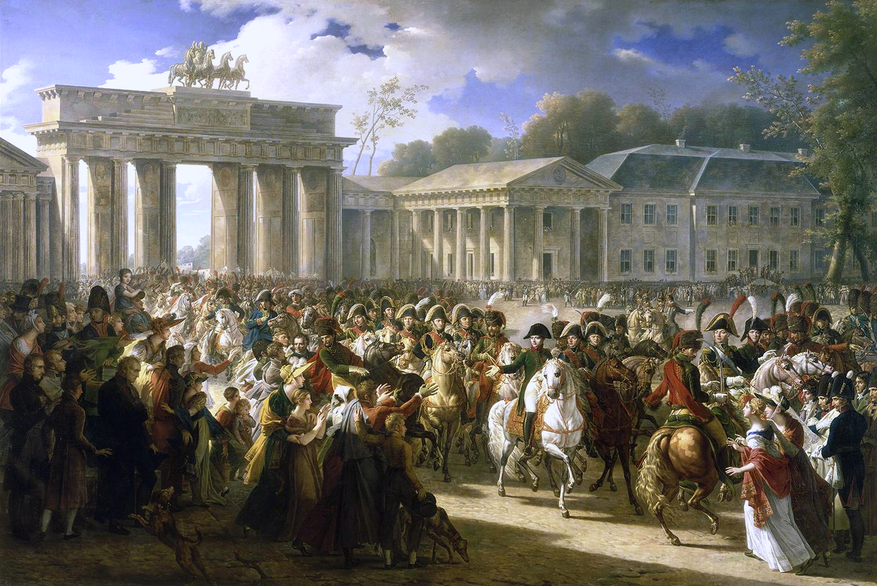
Napoleon in Germany
The task was an easy one after what had been already accomplished. Previous wars and treaties had so redistributed the territories and changed the constitution of the Germanic Empire that it could hardly be said to exist in anything but name. In French history Napoleon appears as the restorer of peace, the rebuilder of the shattered edifice of social order: the author of a code and an administrative system which the Bourbons who dethroned him were glad to preserve. Abroad he was the true child of the Revolution, and conquered only to destroy. It was his mission—a mission more beneficent in its result than in its means—to break up in Germany and Italy the abominable system of petty states, to reawaken the spirit of the people, to sweep away the relics of an effete feudalism, and leave the ground clear for the growth of newer and better forms of political life. Since A.D. 1797, when Austria at Campo Formio perfidiously exchanged the Netherlands for Venetia, the work of destruction had gone on apace. All the German sovereigns west of the Rhine had been dispossessed, and their territories incorporated with France, while the rest of the country had been revolutionized by the arrangements of the peace of Luneville and the ‘Indemnities,’ dictated by the French to the Diet in February 1803. New kingdoms were erected, electorates created and extinguished, the lesser princes mediatized, the free cities occupied by troops and bestowed on some neighbouring potentate. More than any other change, the secularization of the dominions of the prince-bishops and abbots proclaimed the fall of the old constitution, whose principles had required the existence of a spiritual alongside of the temporal aristocracy. The Emperor Francis, partly foreboding the events that were at hand, partly in order to meet Napoleon’s assumption of the imperial name by depriving that name of its peculiar meaning, began in A.D. 1805 to style himself ‘Hereditary Emperor of Austria,’ while retaining at the same time his former title. The next act of the drama was one in which we may more readily pardon the ambition of a foreign conqueror than the traitorous selfishness of the German princes, who broke every tie of ancient friendship and duty to grovel at his throne.
The Confederation of the Rhine
By the Act of the Confederation of the Rhine, signed at Paris, July 12th, 1806, Bavaria, Würtemberg, Baden, and several other states, sixteen in all, withdrew from the body and repudiated the laws of the Empire, while on August 1st the French envoy at Regensburg announced to the Diet that his master, who had consented to become Protector of the Confederate princes, no longer recognized the existence of the Empire.
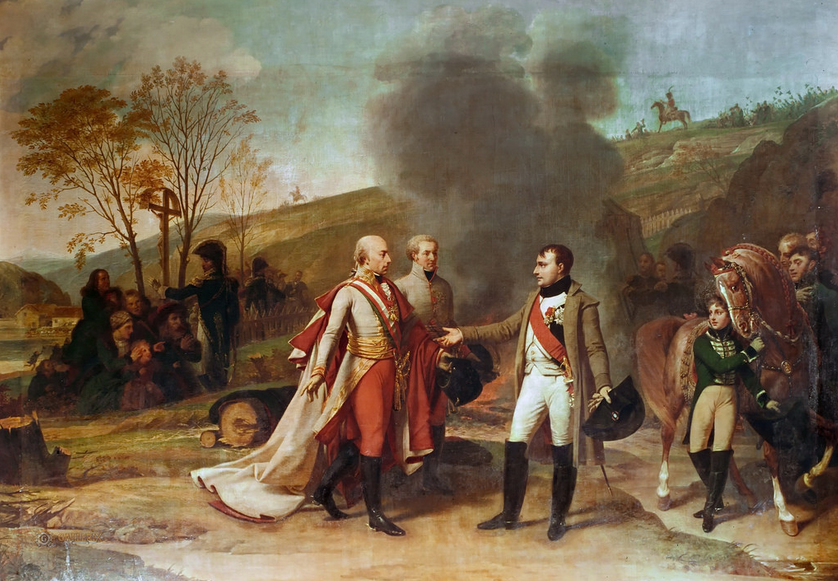
Abdication of the Emperor Francis II
End of the Empire
Francis the Second resolved at once to anticipate this new Odoacer, and by a declaration, dated August 6th, 1806, resigned the imperial dignity. His deed states that finding it impossible, in the altered state of things, to fulfil the obligations imposed by his capitulation, he considers as dissolved the bonds which attached him to the Germanic body, releases from their allegiance the states who formed it, and retires to the government of his hereditary dominions under the title of ‘Emperor of Austria.’ Throughout, the term ‘German Empire’ (Deutsches Reich) is employed. But it was the crown of Augustus, of Constantine, of Charles, of Maximilian, that Francis of Hapsburg laid down, and a new era in the world’s history was marked by the fall of its most venerable institution. One thousand and six years after Leo the Pope had crowned the Frankish king, eighteen hundred and fifty-eight years after Cæsar had conquered at Pharsalia, the Holy Roman Empire came to its end.
There was a time when this event would have been thought a sign that the last days of the world were at hand. But in the whirl of change that had bewildered men since A.D. 1789, it passed almost unnoticed. No one could yet fancy how things would end, or what sort of a new order would at last shape itself out of chaos. When Napoleon’s universal monarchy had dissolved, and old landmarks shewed themselves again above the receding waters, it was commonly supposed that the Empire would be re-established on its former footing. Such was indeed the wish of many states, and among them of Hanover, representing Great Britain. Though a simple revival of the old Romano-Germanic Empire was plainly out of the question, it still appeared to them that Germany would be best off under the presidency of a single head, entrusted with the ancient office of maintaining peace among the members of the confederation. But the new kingdoms, Bavaria especially, were unwilling to admit a superior; Prussia, elated at the glory she had won in the war of independence, would have disputed the crown with Austria; Austria herself cared little to resume an office shorn of much of its dignity, with duties to perform and no resources to enable her to discharge them.
Congress of Vienna
Use was therefore made of an expression in the Peace of Paris which spoke of uniting Germany by a federative bond, and the Congress of Vienna was decided by the wishes of Austria to establish a Confederation. Thus was brought about the present German federal constitution, which is itself confessed, by the attempts so often made to reform it, to be a mere temporary expedient, oppressive in the hands of the strong, and useless for the protection of the weak. Of late years, one school of liberal politicians, justly indignant at their betrayal by the princes after the enthusiastic uprising of A.D. 1814, has aspired to the restoration of the Empire, either as an hereditary kingdom in the Prussian or some other family, or in a more republican fashion under a head elected by the people. The obstacles in the way of such plans are evidently very great; but even were the horizon more clear than it is, this would not be the place from which to scan it.

